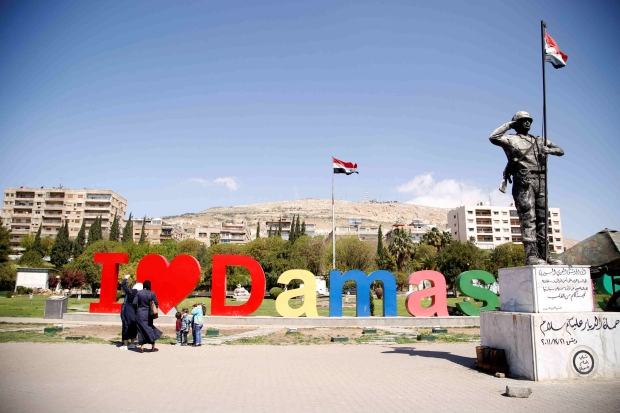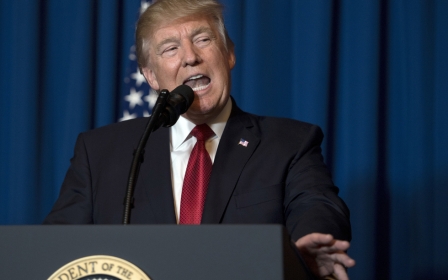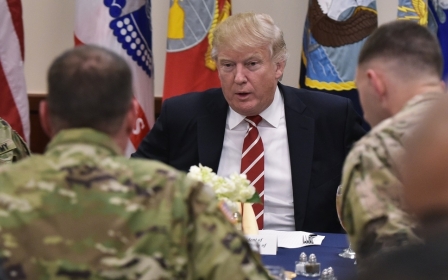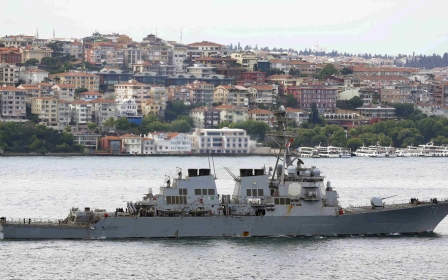'Today, the sun is shining': Syrians react to Trump strikes
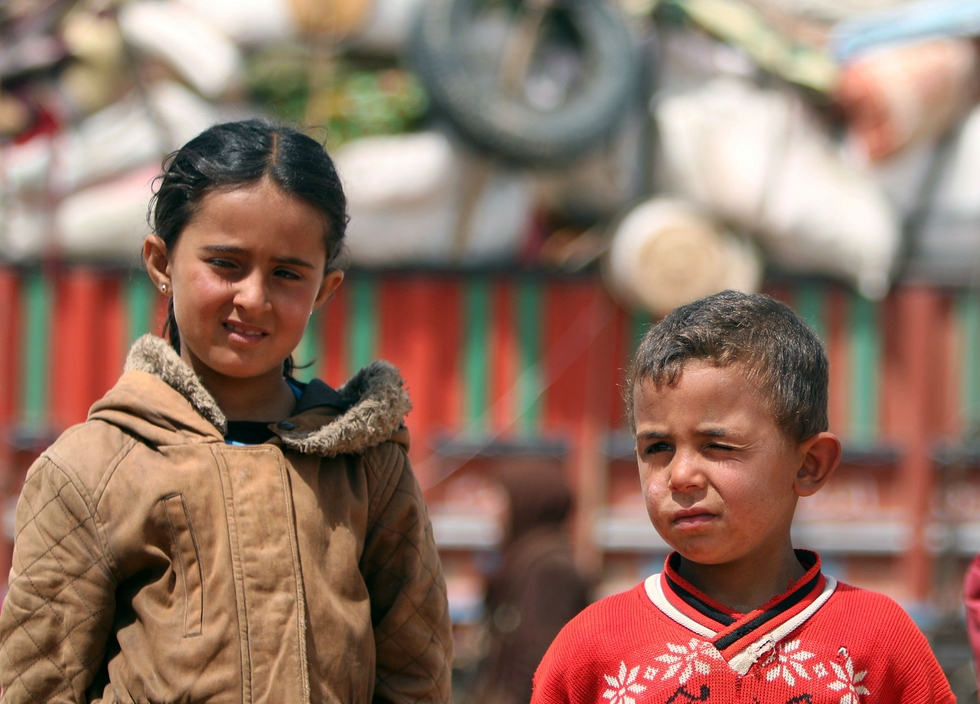
Syrians inside the country met the news of a US strike on a Syrian army base with a mix of optimism and despondence, six years into a war which has seen half a million people killed and half the population displaced.
Shadi al-Haj, a doctor in Idlib province, who treated victims of Tuesday’s chemical attack, welcomed the news positively.
“This airbase was used to kill innocent people, innocent children, innocent women, a lot of innocent people, for many years,” he told Middle East Eye.
The US air strikes hit the Shayrat Air Base in Homs, from which it says the deadly chemical attack on Idlib was launched earlier this week.
“I am happy to hear about the strike,” Haj added, “because the airbase was used to destroy our people, and the soul of our people. Of course we are happy.”
“Today, the sun is shining.”
But Mohammad Shbeeb, originally from Aleppo, and now living as a displaced person in Idlib, was more cautious.
'Today, the sun is shining'
- Shadi al-Haj, doctor in Idlib
“I hope that the international community will do something to stop Assad’s crimes, but I am not so hopeful,” he told MEE.
“If the strikes don’t take down the regime and don’t prevent Assad from ruling in Syria, it means nothing.”
Years of inaction by the international community, despite increasing Syrian government brutality, has left Syrians jaded, Shbeeb said.
“We have experience now. The international community is not serious about fighting Assad.”
US President Donald Trump, he added, is keen to look strong.
For Abdulkafi Alhamdo, also from Aleppo and now living in Idlib, the overnight attack doesn't signal an end to Assad's reign any time soon.
"If this does not stop Assad from bombing us, then nothing will change," he told MEE.
"I mean, children are going to die. This time not by chemical weapons, but by air strikes and other kinds of weapons."
Kassem Eid, who survived the sarin gas attack on Ghouta in 2013, said he felt like the US move was a "game changer."
"This might be the beginning of a new era, this might be actually a real chance for peace in Syria," he told MEE from Germany, where he now lives.
"As long as Assad and his allies think there are not any consequences, they will never stop using their forces to gain ground and there will never be any real political transition or a peace process as long as they think they can do whatever they want," he added.
When he first heard the news this morning, Eid, also known as Qusai Zakarya, thought he was dreaming.
"I was very happy, overwhelmed," he said. "We’ve been waiting for this for a long time, we have been waiting to see Assad held accountable for more than six years and this was the first time we’ve seen any punishment."
In besieged eastern Ghouta outside Damascus, Tariq al-Dimashqi, not his real name, also questioned Trump’s end game.
“I'm happy because somebody has finally done hurt to this butcher, Assad, but nevertheless, what are Trump's intentions?”
He feels it is perhaps little more than propaganda from Trump, he told MEE.
“Trump wants to tell the Americans and the world that he is different from Obama,” the former president, who threatened air strikes against the Syrian government in 2013, after another deadly chemical weapons attack, but ultimately backed down.
But, if the conflict escalates, Dimashqi added, and Russia – Assad’s key ally – is preoccupied with war with the US, peace might return to Syria, he believes.
“I hope that conflict between Americans and Russians will start so the political solution in Syria will approach fast.”
The fact that the US had informed Russia ahead of the attack, which the Pentagon confirmed on Friday, was a worrying sign, Dimashqi said.
“If the two powers aren’t in conflict, no political solution is possible.”
New MEE newsletter: Jerusalem Dispatch
Sign up to get the latest insights and analysis on Israel-Palestine, alongside Turkey Unpacked and other MEE newsletters
Middle East Eye delivers independent and unrivalled coverage and analysis of the Middle East, North Africa and beyond. To learn more about republishing this content and the associated fees, please fill out this form. More about MEE can be found here.


